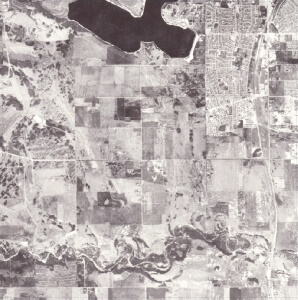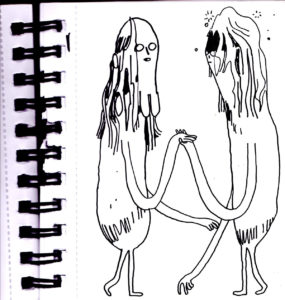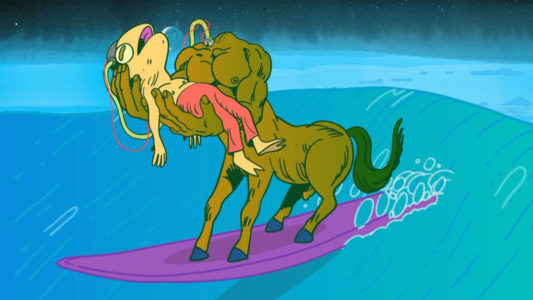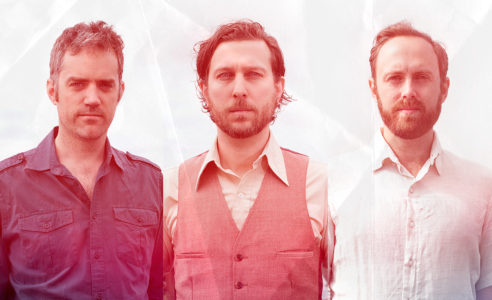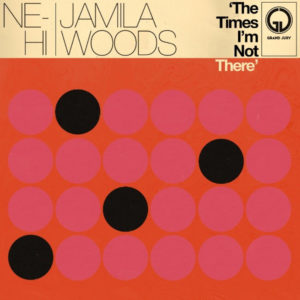Our Interview with Great Lake Swimmers
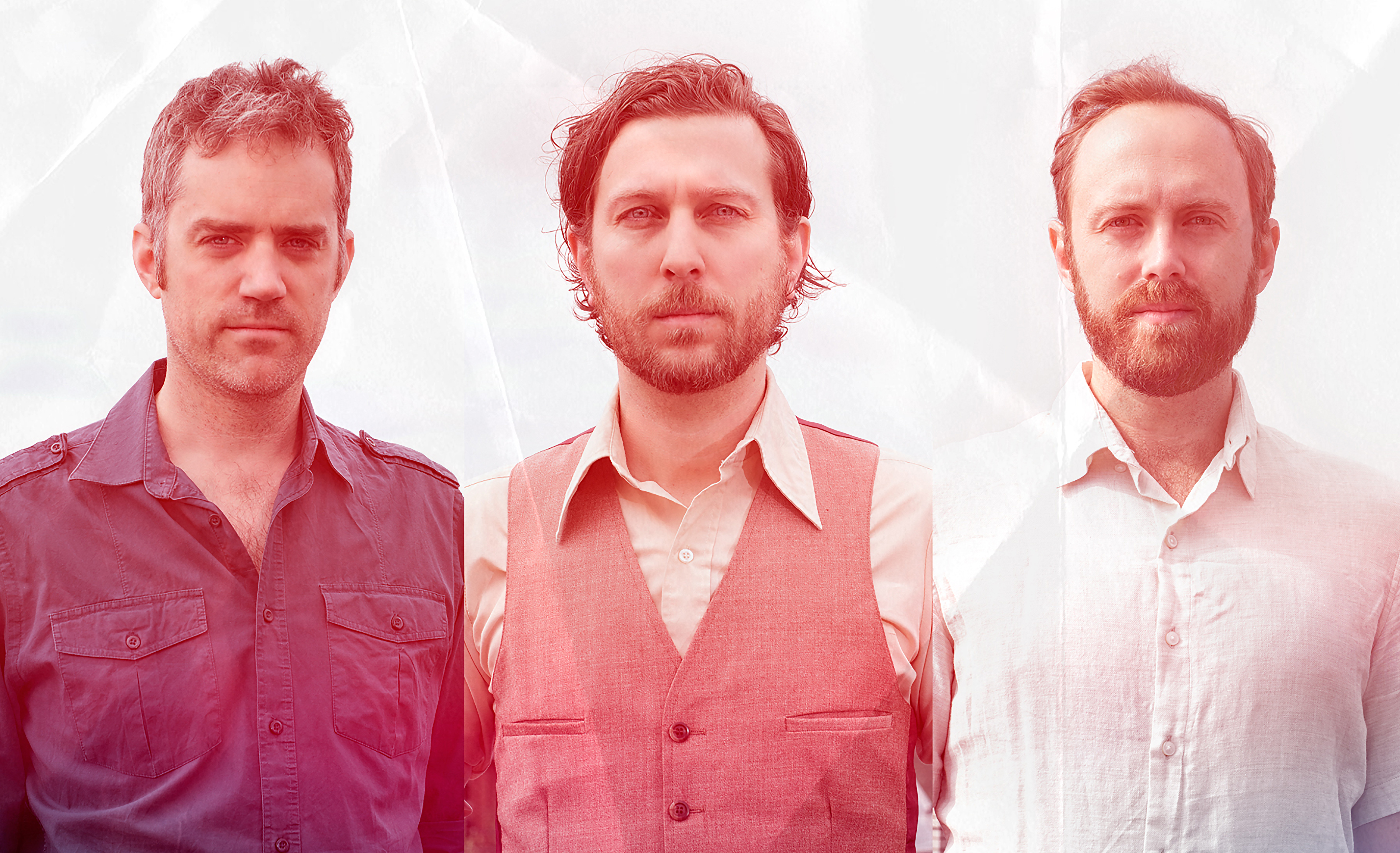
Great Lake Swimmers formed in Toronto fifteen years ago and according to frontman and founding member Tony Dekker that longevity has done nothing but strengthen their sound as a band. Rising out of the independent folk-rock revival scene of Toronto of the time, Great Lake Swimmers quickly rose to success with the release of their first record becoming a hometown hit as well as landing them deals in North America and Europe. This however has not given them cause to slow down in the slightest since their initial release. A broad discography ranging from everything to soundtracks to digital box sets, the band has become everything but complacent in their success. While today marks the release of their seventh full-length album, titled The Waves, The Wake, earlier this month Dekker found time to sit down with us here at Northern Transmissions to discuss his history as a Canadian artist, great milestones in the band’s longstanding career, and of course their newest record as well as what it means for the direction of the band.
Northern Transmissions: So what were you up to yesterday when I called you?
Tony Dekker: We were driving on the way back from New York City we were just doing some promo shows over there this past week.
NT: How did that go?
TD: It went really well. It was really a very easy trip which doesn’t always happen y’know but it was very smooth and we did a couple great sessions and a couple great shows. Sort of playing some of the songs from the new album kind of previewing it. We’re going back to play with the full band in October but we we’re doing a few little preview shows there with a three-piece instead of- the touring band will be a five-piece but we went down as a trio. Did these really intimate little shows and I think it went really well.
NT: Those are always spectacular and I find fans always seem to be a lot more receptive of the material when they hear it beforehand in those kind of intimate venues and when it comes out they always seem to be a lot more receptive in general.
TD: Yeah so I think it was a really- like people were really tuned in. Like you kind of half expect sometimes that people will be talking through those really quiet shows but people were really, really attentive. It was really cool.
NT: Did you find that there was a reason in particular that you wanted to keep playing music around Toronto when you moved there? Was the scene kind of making you want to do it or did you like, want to start a band? Was that kind of always your goal in a sense?
TD: Um, not especially actually I was in bands in high school and when I got out of school I moved to Toronto with more of the intention of getting into writing actually because I had this degree in Literature and I thought that maybe I would either get into some form of journalism or maybe- what I really wanted to do was just write. Like, maybe work on a longer piece of fiction or get into writing poetry y’know or something to get into the literary scene in Toronto is what I was really kind of aiming for when I moved there. But I had been writing all these songs while I was in school then when I got out of school, I was working full-time in the city when I first moved there for a film company so it was sort of like, in an associated kind of creative field and I just started just playing in little, tiny places all around town and I found my people fairly quickly. The scene- it was a really active time in the Toronto music scene specifically for that kind of music where there was that whole second wave of folk music at the time in the early 2000s. It was just y’know, it sort of just took over my life and I decided to take the leap at some point. There was sort of a natural break in my job and I just decided to try to do music full-time and it just- I mean it doesn’t always work out but I got really lucky and within 6 months of leaving my job in Toronto I had: a European record deal, a US record deal, and I was on tour in the States, Europe, and across Canada in that really short time period. It wasn’t something that I actively pursued but it definitely took over my life and that’s been my life since then.
NT: Right, because you guys have been playing together for about 15 years now?
TD: Yeah, the first record came out in 2003. So we’re just at our 15 year mark now.
NT: Looking back, did you always see it lasting this long?
TD: Oh, I had no idea. To be honest, I thought the first album would be y’know- we pressed 500 copies and I thought that we would be lucky to get rid of them to family and friends. Y’know we could maybe sell through them, I thought it could just be it’s own little- it was sort of released as an art project in Toronto through like, an art salon called (weework) and that actually turned into a label and now they’re getting into managing. But it’s like, it wasn’t really ever meant to go beyond that. We never- Our first round of CDs they didn’t have barcodes or anything they weren’t distributed, we dropped them off at record stores and we dropped them off while we were touring and it just um- y’know and they were all handmade too, they were like that. But people responded to it and we kept having to reprint them and reprint them and we went through a bunch of them. It just sort of turned into- I sort of just fell into this music thing, y’know?
NT: Kind of living that sort of dream that a lot of people seem to have of y’know, putting out their music and having people being so receptive to the point where you just have to keep making more of it as a band, right?
TD: Yeah, I mean it started off as kind of like- almost like a songwriter project and then I kind of pieced a band together for the next album and it’s the type of band too that has been like changing over the years too. Members kind of float in and out of the band, so there’s always like a twist almost with the band on every new record. It keeps it kind of interesting like, rearranging the older songs with new instruments has been kind of fun.
NT: Do you find you like to experiment more with like, new instruments as you guys have been changing members like as you go along? Do you find that you start to have ideas in the writing process of like ‘Oh, we haven’t had like say this instrument so maybe we should find someone who can play it’ sort of idea or is it more so when they come in you start writing for it?
TD: Well, that kind of brings me to the new record because for the last couple records before this new one we sort of had, more or less a regular backing band and it was kind of like let’s see what these 5 people can do in a room together maybe with a few extra guests on the album. But it was more or less very much like y’know guitar, bass, drums, and acoustic guitar and sort of loosely like folk rock kind of songs. With this one I feel like I really called on the Toronto music community to be like, the backing band and with this one we really consciously wanted to expand the palette of instruments and I kind of wanted to be less of like “The guy with the acoustic guitar” y’know?
NT: Right.
TD: Yeah and do more interesting arrangements, like we have a woodwind ensemble on one song, one song is just marimba and vocals, one has a harp, one has just banjo and flute, and another is just a capella where there’s like no instruments at all it’s just all vocals. Did you get a chance to hear the new album yet?
NT: Unfortunately I haven’t had a chance to hear it yet, but I was going to ask you if you were looking forward to people hearing most on the record? And it sounds like you’re quite happy with the [instrumental] aspect of it that you’ve kind of come out at the end of this with all of these arrangements that aren’t exactly expected from that genre of music and I’m looking forward to hearing it because it sounds like you’re really kind of coming out of the gates surprising people compared to what they’ve already heard.
TD: I think so but it’s also not like, we added a bunch of stuff either to the approach. It was co-produced with a producer from Toronto named Chris Stringer who runs out of studio called Union Sound. Our approach from the beginning was to kind of like, keep it minimal at the same time. So, it was like scaled back, I think it’s a little more atmospheric than the stuff we’ve done in the recent past. It might even be a bit of a call back to the earlier albums that are a little bit more dreamy and atmospheric. So that was like a big kind of goal was to kind of keep it minimalistic as well, y’know?
NT: So would you say that that sort of challenge is what inspired a lot of your process for this record? Or would you say that you found inspiration moreso elsewhere? I guess you could say there’s the musical aspect and the writing aspect, you seem like you were quite inspired in that sense for the music but is there anything in particular you found was inspiring for you to write about lyrically or in the literary sense?
TD: Well I think- y’know this is album number seven for us and there are these kind of themes that I think sort of go through the albums and they come up again. I feel like for this album it was very much like an album album. Like I know that a lot of songs are just sort of getting released just as singles now or people kind of pick and choose y’know, from the album like songs. There’s a lot of emphasis on that on Spotify right now.
NT: Stream scumming, and the like.
TD: Yeah, but I feel like these songs are all kind of meant to be on an album together, I think they’re kind of cohesive thematically. Sort of approaching a spirituality, nature, and the natural world has been a really important theme and that comes up on this album as well. I wouldn’t say that like, it wasn’t really being written for specific instruments it was more like “let’s take a really close listen to this song and see what it’s kind of asking for.” The lead-off track is a song about the wind so why don’t we just have a track where it’s just a woodwind ensemble like, clarinets, flutes, bass clarinets and arrange the song for that. Y’know made of woodwinds because it’s appropriate for the song. So we kind of like approached it all that way, a little bit.
NT: Would you call that a new approach for you guys then? Kind of writing it out and approaching it from that aspect of what instruments you want on it as opposed to simply having all the instruments you have on it?
TD: Yeah, definitely.
NT: Do you feel more accomplished in that sense then, do you feel as if there’s more kind of work going into the album as a whole?
TD: Well, I don’t know it’s like a complete sort of turn for us but I think it’s like a step in a different direction and that makes me kind of excited and already thinking about the next thing. I think that there’s room to kind of dig deeper and go further. I feel like this a good new direction for us, I felt like we had brought the sound of the band to a certain point and I’m very pleased with that. We do play the old songs as well from our back catalog in the live show but with this I really feel like we’re onto something a little different just I mean in terms of the group, y’know in terms of the project and that makes me really excited because I feel like there’s something different and new for us. Still something familiar but still sort of something different. I don’t know, it’s hard to say.
NT: It’s that kind of idea of keeping it fresh but also keeping it true to yourselves as writers and musicians.
TD: Yeah, the tone is still the same like it’s still very much like a great Summer’s album it’s just got all of this other stuff going on. Still in a pretty scaled back way, it’s sort of a different palette of colours I guess.
NT: Mhm, and it’s always nice to paint with a new brush every once in a while.
TD: Yeah, exactly.
NT: In your writing process do you find you listen to a lot of other artists or do you find you try to keep it more insular in the sense that you’re not being influenced by anyone else?
TD: Yeah, I mean well first I would say no. I’m not really listening to anything else in particular like I’m not trying to be something in the style of or manner of someone else’s work, definitely not. And I wanted to say that like i start with the writing most of the time and then for me most of the heavy-lifting is done in the lyrical aspect of it. Then I call people in or kind of collaborate with people musically for some of that stuff but that’s not exactly right either because, like for songwriting y’know some poems, some poetry, or some pieces of writing don’t necessarily work all that well when you set them to music. You can’t just set words to music, I think it’s with songwriting where you really have to mesh them together like a musical idea, melody, a structure. The writing has to speak to that too so, it’s a little bit trickier than just writing straight prose or whatever and it’s also different than just writing the music for something. Sometimes they line up great but most of the time I find that they don’t. So for me, there are definitely songwriters in particular that I really admire but I kind of start from a pretty solitary place in terms of the writing.
NT: Well, now that the records all said and done is there kind of music you find yourself listening to lately?
TD: Well, when we’re touring in Canada with a songwriter named Megan Bonnell, her newest record was produced by our drummer Josh Van Tassel who drums on the record, and she’s coming on the road with us I think she’s a really strong songwriter. Beyond that I mean, there’s so much music in Canada specifically it’s hard to kind of narrow it down. I really like the new Chad VanGaalen record [Light Information], I really like his music in general I think he’s great. There’s a lot of good stuff out there right now.
NT: I’m actually really glad that you mentioned Canadian music because I was wanting to ask you from your guy’s perspective being a band that kind of came around earlier in the kind of, Internet era or an era of music that has grown up entirely with the internet, do you feel that there are still challenges that Canadian bands face that say bands from the US do not or do you feel that the rise of the digital, global music scene has bridged that gap, in your experience?
TD: It’s really hard to say I mean the industry has definitely changed even from the beginning of the Internet. It almost seems like from one perspective the Internet was really helpful thing to sell CDs at first. Before there was, even when I look back to the early Napster and all that stuff, that doesn’t even seem that kind of bad in comparison y’know?
NT: Yeah.
TD: To like now where it’s kind of like there’s this sort of idea that y’know music and culture at large can be kind of a disposable thing. I hope that people are tuned into the fact that there are people that are making music that is not meant to be used up and then- I don’t know, it’s just this kind of attitude that where-
NT: Where it’s not disposable is what you’re saying.
TD: I mean there’s really no other way to say it. There’s just so much all the time it’s like that something that’s been out for a week is now old and it’s kind of like this thing. There are a lot of great things about the way things have changed too. There’s total access to so much great music now but it’s- I think for the musicians its made it a lot harder for everybody to sort of figure out how to make a living from it. But y’know, that’s besides the point we do it because we love it and we do it because we feel like we’re contributing something, we have something to share, music will always be there, and good music you can always find it and good music is good music regardless what format or medium that it arrives in. There is a lot of great music out there now. I don’t know about Canada vs. the US, I feel that potentially the way the rise of the internet has maybe levelled the playing field a little bit. I like listening to records from other parts of the world and other cultures as well and it’s becoming easier and easier to locate and find that stuff and to kind of dig deeper. I love that about how music has been kind of democratised a little bit more but I think it’s still sort of sorting itself out. I kind of recognize the importance of streaming platforms like Spotify and Apple Music of course, I just hope that there’s a way to sort of make it work for everybody I guess.
NT: Absolutely, and kind of hoping to move past that disposable idea and have people maybe write more for resonance in that sense because a lot of people seem to be complaining now online at the very least that very little music in the mainstream is resonant, you know what I mean?
TD: I think the gap is getting wider too, y’know? Like it’s that whole thing where you’re gonna get this Top 40 that’s gonna kind of take over the entire mainstream and the indies are kind of getting pushed further and further down.
NT: Right and that’s the last thing you kind of want.
TD: I don’t know there’s always tons of great exceptions to the rule as well. It’s hard for me to make any sort of authoritative statement on that.
NT: It’s always changing so fast.
TD: Yeah, exactly.
NT: In that vein of finding your own definitions of success, what would you say has been your greatest achievement as a band? Or at least in your eyes as a band. Is it a particular show, is it maybe signing the deal right at the beginning of your career? Is there anything that kind of jumps to mind as your kind of biggest “oh my gosh, this is happening” sort of situation?
TD: Oh I don’t know, we’ve had so many great moments really over the years. It’s hard to kind of like, pick just one. We played Massey Hall a few years ago and in Toronto it’s a very storied Canadian venue, but specifically in Toronto It’s a very well known place. The place you want to play especially being a band from the city bet even being a Canadian band it’s a hallowed place. A really great place to play and I was so nervous going into it but everything just went off so well. They recorded it for the Live at Massey Hall series. It was just like fitting a hand into a glove, it just went off so well. Very close to a full capacity room and it was just a really exciting moment for sure. We played the 2010 Olympics in Vancouver, there were a lot of Canadian bands that played that but we were lucky enough to also play that. We played at, I think, the Ontario Pavilion and then we played up in Whistler while we were there and that was an exciting moment too to see that we were a part of something that was specifically representing our country in a way musically, so that was like cool. We’ve been nominated for Junos a few times now too and that’s a nice thing to be recognized, certainly not why you do this but we’ve had a lot of great milestones and that’s just off the top of my head. We did some touring in Asia which was very exciting. If I stop to think about it’s been a really kind of, colourful career for us.
NT: That’s incredible. I guess with all of those positives kind of in mind now, is there anything you can think of you still consider a “shoot for the moon” goal? Something you hope to achieve as a band even if it’s a little bit unrealistic or something you guys really really, maybe not work towards but hope that it will work eventually?
Tony Dekker: Oh I don’t know, I mean survival is a pretty realistic goal.
NT: [laughs] That’s a pragmatic answer.
Tony Dekker: Maybe yeah, I mean artistically I still think there’s lots of room to grow and lots of ground to cover and I don’t feel like I’m out of ideas yet. In some ways I feel like I’m just getting started. With this record in particular, I feel like I had a lot of breakthroughs in my writing and I think that the songs they read well and they listen well together as well.
NT: Is there a song on the record you’re very excited for people to hear in particular?
TD: Well I’m really happy with ‘The Real Work’ it sort of midway through the album. We started adding stuff and taking stuff away, it’s more of a piano based ballad, there’s a lot of words but I really feel like it gets to a real point by the end of the song and I really like that one a lot because we started taking stuff away and the more stuff we took away the better it started to sound to me. I’m really happy that we took that approach to scale things back because I think in the end, not only on that song, but that song in particular it kind of made it a stronger song and I really like that whole idea, making the philosophy keeping things kind of minimal and making sure every instrument has a voice. I’m just really happy with how that one turned out.
NT: That’s excellent. It’s interesting that you guys kind of took what some people would consider a reverse approach to songwriting because you know obviously a lot of it starts with the writing and everything comes in after that whereas you guys took it backwards. Removing as opposed to adding and finding that it sounds better with that emphasis.
TD: Yeah for sure.
NT: Well I want to thank you so much again Tony, for talking with us over at Northern Transmissions. Was there anything in particular you want people to know? Do you guys have tour dates coming up, anything you can tell people?
TD: The album is coming out on August 17th, and we’re doing a full- well not a full Canadian tour but we’re touring from basically Toronto to Victoria and all points in between. We’ve got a bunch of shows in BC, Alberta, Saskatchewan, Ontario, Manitoba and then we’re doing five or six weeks in the US. So we have a lot of American dates coming up as well. We’ll be doing a European tour later this year as well. So we’ve got all kinds of things lined up for the live show in the next little while and it’s all on our website greatlakeswimmers.com. We’re pretty active on social media so we’ve got a Twitter account and Instagram page if anyone wants to check it out. Beyond that that’s pretty much it. We’ll probably, hopefully be reaching a lot of cities in the next two or three months.
An Interview By Maguire Stevens
Great Lake Swimmers
Tour Dates:
4/21 – Uxbridge, ON @ Springtide Music Festival
5/4 – Hamilton, ON @ Mills Hardware
5/5 – Creemore, ON @ Avening Community Centre
5/25 – Burnstown, ON @ Neat Coffee Shop
6/2 – Windsor, ON @ Olde Walkerville Theatre
7/6 – 7/8 – Kincardine, ON @ Kincardine Scottish Festival
8/21 – Gravenhurst, ON @ Peter’s Players
9/13 – Regina, SK @ The Exchange
9/14 – Saskatoon, SK @ Broadway Theatre
9/15 – Sherwood Park, AB @ Festival Place
9/16 – Calgary, AB @ Festival Hall
9/17 – Nelson, BC @ Spirit Bar
9/20 – Victoria, BC @ Capital Ballroom
9/21 – Vancouver, BC @ Imperial
9/22 – Penticton, BC @ The Dream Café
9/24 – Red Deer, AB @ Bo’s Bar
9/26 – Winnipeg, MB @ West End Cultural Centre
9/27 – Thunder Bay, ON @ Crocks
9/29 – Sudbury, ON @ The Townhous
Latest Reviews
Tracks
Advertisement
Looking for something new to listen to?
Sign up to our all-new newsletter for top-notch reviews, news, videos and playlists.





